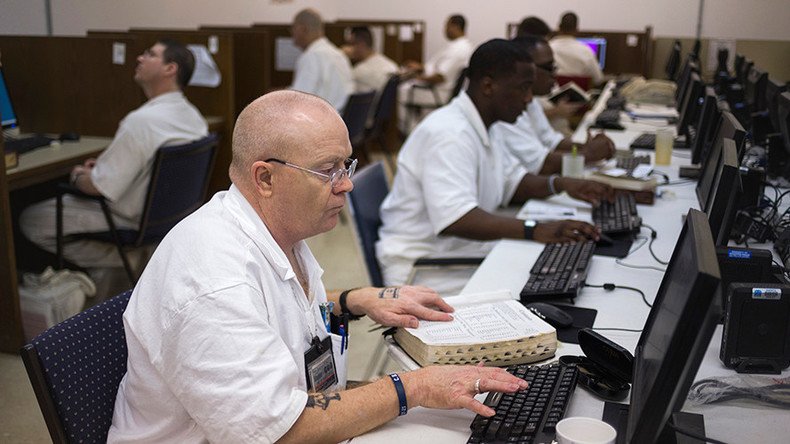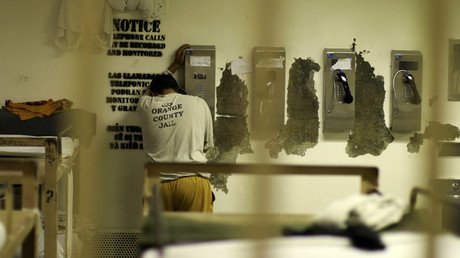Claiming that they are treated like slaves, inmates from up to five Texas prisons have orchestrated a historic workers’ strike. A lack of access to quality food and water, low wages, overcrowding, and poor working conditions were among their complaints.
Striking inmates are refusing to leave their cells for work assigned by Texas Corrections Industries (TCI), a publicly traded company.
Established in 1963 under the Texas Department of Criminal Justice, TCI uses prison labor to make a variety of products “from hand soap to bed sheets, from raising livestock to making iron toilets and portable buildings,” all of which are sold to local, state, and federal government agencies, as well as public schools, and hospitals ‒ and prisoners receive none of the profits, according to a letter outlining the reasons for the strike.
“Texas’s prisoners are the slaves of today, and that slavery affects our society economically, morally and politically,” the five-page letter announcing the strike read. “Beginning on April 4, 2016, all inmates around Texas will stop all labor in order to get the attention from politicians and Texas’s community alike.”
While slavery was outlawed by the 13th Amendment after the Civil War, it does contain one exception – prison labor – Jim Del Ducca of the Incarcerated Workers Organizing Committee, an arm of the International Workers of the World, told RT’s Anya Parampil.
“People are making a profit off of [the inmates]. Yes, the taxpayers do, ostensibly, fund prisons, but the fact of the matter is that private corporations use prison labor to manufacture goods, which then make profits,” Del Ducca said. “And these profits don’t go back to the prisoners, they don’t go back to the prison system to lower the burden on the taxpayers.”
“It’s a profit-producing system, just like a plantation in the old days,” he added.
Del Ducca points out that inmates often earn what might generously be described as a pittance ‒ mere pennies per hour.
“When we talk about wages for prisoners, they can be working for nothing or five cents an hour. It’s just, well, it’s horrible,” he said.
However, the letter notes that prisoners are often denied compensation for their work as a form of punishment for real or perceived transgressions.
“They are forced to work on a daily basis, if they refude [sic] to work a single day, they are punished in many different ways,” the letter said. “They work without any payment. They don’t get any credit for their work neither for their good conduct.”
In some states, prisoners in privately run facilities earn 17 cents an hour, but prisons in Texas and several other (mostly Southern) states don’t require inmates to be paid at all, Erica Gammill, director of the Prison Justice League, an organization that works with inmates in 109 Texas prisons, told The Intercept.
While it might seem that prisoners don’t not need money because their housing and food are provided by taxpayers, that impression is incorrect, Del Ducca told RT.
Phone calls home “are a dollar or more a minute, and the prisoners have to buy phone cards at exorbitant rates,” he said. “But also in Texas specifically, where our members are on strike, there’s a policy of a $100 copay simply for medical services. So, you know, a prisoner making five cents an hour, it takes a long time just to earn enough money to pay for basic medical services.”
Gammill hopes that the strike will spread from Texas to Alabama, Mississippi, Oregon and beyond.
“Over the long term, we’ll probably see more work stoppages,” she said. “In prison, you think it’d be difficult to spread information, but it actually spreads like wildfire.”
Prisoners from Ohio, Alabama, Virginia and Mississippi have already joined the effort. On Friday, a group called for “nationally coordinated prisoner work stoppage against prison slavery” to take place on September 9, the 45th anniversary of the Attica prison riot.
“We will not only demand the end to prison slavery, we will end it ourselves by ceasing to be slaves,” the announcement of the September 9 strike read. “They cannot run these facilities without us.”


